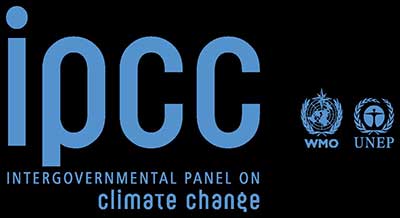Relevance: GS-3: Conservation, environmental pollution and degradation, environmental impact assessment
Key Phrases: Intergovernmental Panel on Climate Change (IPCC), capture and store carbon (CCS), Central Electricity Authority, Global Energy Monitor data, Paris Agreement
Why in News?
- Recently, the Consortium of Scientists, part of the IPCC panel, said that limiting global warming would require major transitions in the energy sector.
- The world is not on the track of fulfilling goals set under the Paris Agreement.
Key Highlights :
- The Consortium of Scientists were part of the Working Group 3, or those with expertise to analyse how best the impact of greenhouse gas emissions could be mitigated.
- Scientists asserted that limiting global warming will require major transitions in the energy sector and this will mean drastically reducing fossil fuel use, widespread electrification, improved energy efficiency, and the use of alternative Fuels.
- An aspect of the report, of particular relevance to India, is that
there is no place for new coal plants.
- The panel finds that all coal-fired power plants, without the technology to capture and store carbon (CCS), need to be shuttered by 2050 if the world aspires to limit global temperature rise to 1.5c.
- According to the Central Electricity Authority, India has about 211 GW of operational coal-fired power plants — roughly 10% of global capacity.
- As per Global Energy Monitor data, another 31 GW was being constructed and about 24 GW in various pre-construction phases.
- None of the existing under construction coal-fired power plants in India have CCS facilities.
- Scientists found out that having the right policies, infrastructure and technology in place to enable changes to our lifestyles and behaviour can result in a 70% reduction in greenhouse gas emissions by 2050. This offers significant untapped potential.
- The evidence also shows that these lifestyle changes can improve our health and wellbeing.
Key Findings:
- The scenario of limiting warming to around 1.5°C requires global greenhouse gas emissions to peak before 2025 at the latest and be reduced by 43% by 2030; at the same time, methane would also need to be reduced by about a third.
- Even if this happened, it was almost inevitable that this ceiling would be temporarily breached but, with appropriate action, it could again dip down by the end of the century.
- "It’s now or never, if world want to limit global warming to 1.5°C":
- The IPCC panel said in a statement, “Without immediate and deep emissions reductions across all sectors, it will be impossible."
- The global temperature will stabilize when carbon dioxide emissions reach net zero.
- For 1.5°C, this meant achieving net zero carbon dioxide emissions globally in the early 2050s.
- For 2°C, it is in the early 2070s. Even limiting warming to around 2°C would still require global greenhouse gas emissions to peak before 2025 at the latest and be reduced by a quarter by 2030.
- The latest IPCC report is a stark reminder to all developed countries
to significantly bring forward their transition to a net-zero economy.
- This would leave additional carbon space for countries like India to meet their development priorities on the path to achieving their net-zero target.
- Further, to accelerate the low-carbon transition, developed countries should ensure higher flows of finance and technology transfer in critical areas such as renewables, electric vehicles, green hydrogen, and others.
- Failure to arrest the planet’s warming to 1.5 degrees Celsius is likely to cause irretrievable damage to our ecosystems, which in turn could disproportionately devastate the economies and vulnerable communities.
Conclusion
- India has committed to a net-zero year, or when it would cease to be a net carbon dioxide emitter, of 2070.
- India has also defined a pathway to transition to renewable energy sources but also insisted on its right to coal use given its developmental needs as well.
- India asserted that the historical responsibility of climate change from fossil fuel rested with the developed countries, who needed to shoulder much of the mitigating burden and fulfill their obligations under the Paris Agreement.
Source: The Hindu
Mains Question:
Q. The Intergovernmental Panel on Climate Change(IPCC) said "It’s now or never, if the world wants to limit global warming to 1.5°C". In this context, examine various steps taken by India for a climate resilient development and net zero emission by 2070. (10 marks).









